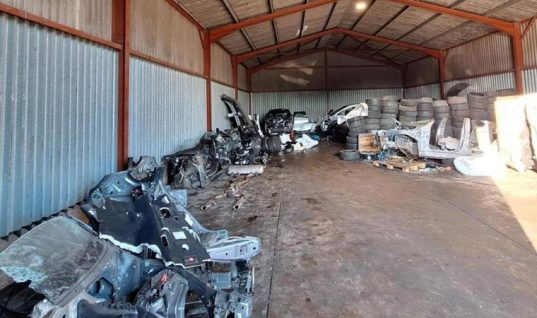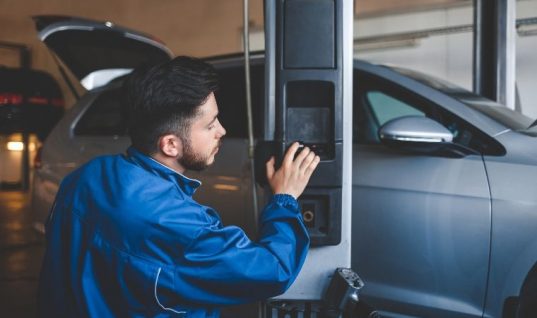The recent SMMT report, “What the Aftermarket Needs to Deliver,” brings both affirmation and urgency. The transformations it describes are not distant predictions – they are happening now. Across our industry, many businesses are embracing these changes, while others risk being left vulnerable and under-prepared.
At Autotech Group, we see these shifts every day, in the challenges workshops face as a result of the skills shortage, the ambitions of newly qualified vehicle technicians, and the growing opportunities that come with embracing digital solutions.
The aftermarket now stands at a critical juncture: evolve with purpose and speed, or risk falling behind. The encouraging news is that progress is already underway, but there is more to do.
The technology imperative is no longer optional
Today’s vehicles are computers on wheels. ADAS systems, vehicle-to-cloud connectivity, over-the-air updates, and electrification are no longer niche innovations- they are fast becoming standard features.
The SMMT report offers some positive signs:
- 81% of workshops now say they are equipped to service EVs.
- 77.6% can maintain ADAS systems.
- Over 83% expect to increase spending on training and equipment in the next year.
These figures reflect a sector already investing in the future, a clear signal that workshops are not standing still. However, progress remains uneven. While many businesses are taking the right steps, others are struggling to keep pace. Our own recent ADAS readiness survey revealed that two-thirds of independent garages lack a single vehicle technician qualified to carry out ADAS calibrations or repairs, and more than half either outsource this work or don’t offer it at all.
The stakes are high. Without the right tools and skills in place, workshops risk missed opportunities and, more importantly, compromised vehicle safety.
Technology is reshaping every part of the workshop – from how diagnostics are carried out and vehicle data is accessed to how repairs are planned, and customer updates are delivered. It’s no longer enough to just add a new piece of equipment or the latest diagnostics tool. Increasingly, workshops are turning to connected technologies, such as remote-assisted reality, to link directly with specialist support in real time. This not only helps solve complex issues faster but also dramatically reduces repair times, keeping vehicles, and customers, moving.
The encouraging news is that many garages have already taken important steps forward. The next challenge is making sure this progress reaches every corner of the aftermarket, so no business is left behind as vehicles continue to evolve.
Cybersecurity and Data Access – Hidden Battlegrounds
As vehicles become more connected, cybersecurity has shifted from being a back-office concern to a frontline issue for workshops.
As the sector becomes increasingly reliant on connected tools, cloud-based systems, and digital infrastructure, many garages are being exposed to risks they may not fully recognise or prepare for. From diagnostic equipment linked to manufacturer networks to digital customer management systems, every point of connection introduces potential vulnerabilities, and the consequences of a breach could be severe, both financially and in terms of customer trust.
The SMMT report highlights the need for secure, standardised access to repair and maintenance information, ensuring independent workshops can operate safely and competitively on modern vehicles. Without this, these businesses risk being locked out of vital diagnostic processes or forced into unsafe workarounds. These improvised solutions don’t just compromise repair quality – they can create cybersecurity weaknesses, opening the door to potential breaches that put both vehicles and sensitive customer data at risk.
This is more than a technical problem; it’s a matter of trust and safety. Vehicle owners expect that every interaction with their car, from diagnostics to software updates, is secure. If that trust is broken, it could undermine confidence in the whole aftermarket.
Encouragingly, there is growing momentum around frameworks like SERMI, which aim to provide a controlled, secure way to manage access to sensitive vehicle data. By adopting robust cybersecurity practices and supporting these emerging standards, the aftermarket can stay ahead of risks and maintain fair competition.
The Skills Gap: Today’s Challenge, Tomorrow’s Risk
The report paints a sobering picture of workforce pressures:
- There are over 23,000 vacancies in the aftermarket today – projected to rise to 29,000 by 2035.
- 78% of workshops expect significant numbers of their most experienced staff to retire within the next four years, creating a looming gap in leadership and expertise.
- Fewer than 1 in 20 businesses report having no vacancies at all.
This isn’t a problem on the horizon – it’s a crisis already unfolding.
While there are reasons to be hopeful – with many workshops planning to increase investment in training and upskilling – the report highlights that this still only represents under 1.5% of a workshop’s turnover. This level of investment is far below what is needed to build and maintain the skills required for today’s increasingly complex vehicles. Without a stronger focus on upskilling, even well-equipped workshops could find themselves struggling to deliver safe, efficient, and competitive services as technology continues to evolve.
The challenge now is to ensure that this investment is targeted where it will have the most impact, in areas like EV safety, ADAS calibration, and software diagnostics.
The issue is also about more than simply filling empty roles and upskilling. With so many experienced technicians nearing retirement, the industry must focus on knowledge transfer and succession planning. This means creating clear, supported pathways for new talent, from apprentices and interns entering the trade to skilled workers transitioning from other industries. Structured mentoring, hands-on experience, and defined career routes are essential to build the next generation of workshop leaders.
By doing so, we will not only replace those who leave but equip tomorrow’s workforce to thrive in an industry that is rapidly evolving.
Policy, Reform, and the Bigger Picture
The report also highlights the need for policy reforms to keep pace with technological change. For example, MOT testing must evolve to include ADAS checks and more advanced emissions testing.
There’s a strong case for investment incentives, such as capital relief for workshops upgrading their equipment, and fair revisions to MOT fees – unchanged since 2010. All of this would make it easier for smaller operators to modernise and compete.
Ultimately, this isn’t about keeping up with regulations. It’s about ensuring the aftermarket remains competitive, trusted, and resilient, delivering safe, reliable services to drivers as vehicles become more complex.
A Call to Action
The message from the SMMT report is clear: the aftermarket is entering a period of profound change.
Workshops must take a proactive approach. This means auditing technology readiness, committing meaningful resources to staff training and upskilling, and strengthening cybersecurity practices while pushing for secure, fair access to vehicle data. It also involves planning for the future workforce, ensuring that as experienced technicians retire, new talent is ready to step in and grow.
Equally important is a commitment to advocating for policies that support sustainable growth and innovation across the industry. This isn’t just about surviving, it’s about thriving in a rapidly evolving landscape, building businesses that are prepared for the vehicles of tomorrow.
Looking Ahead
At Autotech Group, our purpose is simple: to support and strengthen the aftermarket as it navigates this transformation. Through our insights, partnerships, and daily engagement with workshops and technicians across the UK, we see the challenges firsthand, and we understand what it takes to overcome them.
The future will be shaped by skills and technology, but above all, by people. Those who embrace change, invest in their teams, and adapt to new technologies will not just survive, they will lead.







